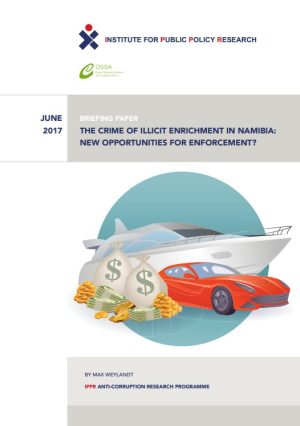Corruption is difficult to prove- most of the time, the parties involved all have very strong reasons for keeping what happened a secret. To ensure more success in court, anti-corruption crusaders have suggested making illicit enrichment a crime: if a public official has more money than they are supposed to get from their legitimate income, they can be prosecuted if they can’t explain where the money comes from.
This paper takes a look at illicit enrichment laws, the ways in which they are used, and the potential problems with them. Indeed there are several concerns: for one, there are several human rights concerns that come with this type of law.
As the paper says,
Should these laws be introduced, they would face many operational obstacles– not to mention the ethical concerns and criticisms. Illicit enrichment laws cannot be viewed as a quick fix for corruption prosecutions. If underlying issues (such as poor compliance with financial disclosure regimes and a lack of political will to prosecute corruption at the highest level) are not addressed, illicit enrichment laws will not make a difference.
Instead, other alternative routes could be pursued to penalise those engaged in corrupt dealings.

